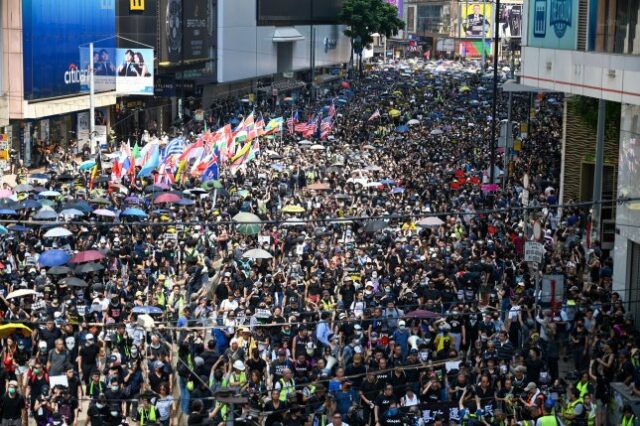July 28 (UPI) — A United Nations panel of independent human rights experts urged the repeal of Hong Kong’s national security law, saying the sweeping legislation is being broadly applied to clamp down on civil society.
Chinese and Hong Kong officials have claimed that the law, which was imposed by Beijing in 2020, was necessary to restore order after anti-government demonstrations had roiled the semi-autonomous city for months.
However, the U.N. Human Rights Committee said in its findings on Wednesday that it was “deeply concerned about the overly broad interpretation” of the law, which has led to the arrests of over 200 people, including 12 children.
“The committee urged Hong Kong to take action to repeal the National Security Law and, in the meantime, refrain from applying it,” the report said.
The rights panel monitors the implementation of the International Covenant on Civil and Political Rights and released its findings in Geneva following a scheduled review.
The experts flagged the lack of clarity around the law’s definition of “national security” and expressed concerns about the possibility of transferring criminal cases from Hong Kong to mainland China. Hong Kong is a signatory to the ICCPR but China is not.
“Once a state party has subscribed to the covenant, there is an obligation that those rights are paramount,” committee vice chair Christopher Arif Balkan said. “In other words, your local legislation cannot derogate from those rights.”
The law’s passage has resulted in a crackdown that has targeted journalists, former lawmakers and pro-democracy activists with charges ranging from subversion to collusion with foreign forces.
The U.N. report highlighted “the excessive number of civil society organizations, such as trade unions and student unions, which have relocated or ceased to operate since the enactment of the [national security law].”
Hong Kong’s independent media has also all but disappeared under the legislation, which has been used alongside a revival of archaic, colonial-era laws such as sedition.
Hong Kong’s government objected Wednesday to the panel’s findings, claiming the committee did not give due weight to “the background of the violent social unrest” that preceded the law.
The panel also did not recognize the “soft resistance acts, hate speeches and publications which have radicalized the general public the since 2019,” the government’s statement said.
The U.N. experts said they hoped the semi-autonomous city would amend the law and noted that Hong Kong representatives informed them they were contemplating new national security legislation.
“They gave us assurances that there would be transparency, consultation in enacting a new security law,” Balkan said.

COMMENTS
Please let us know if you're having issues with commenting.